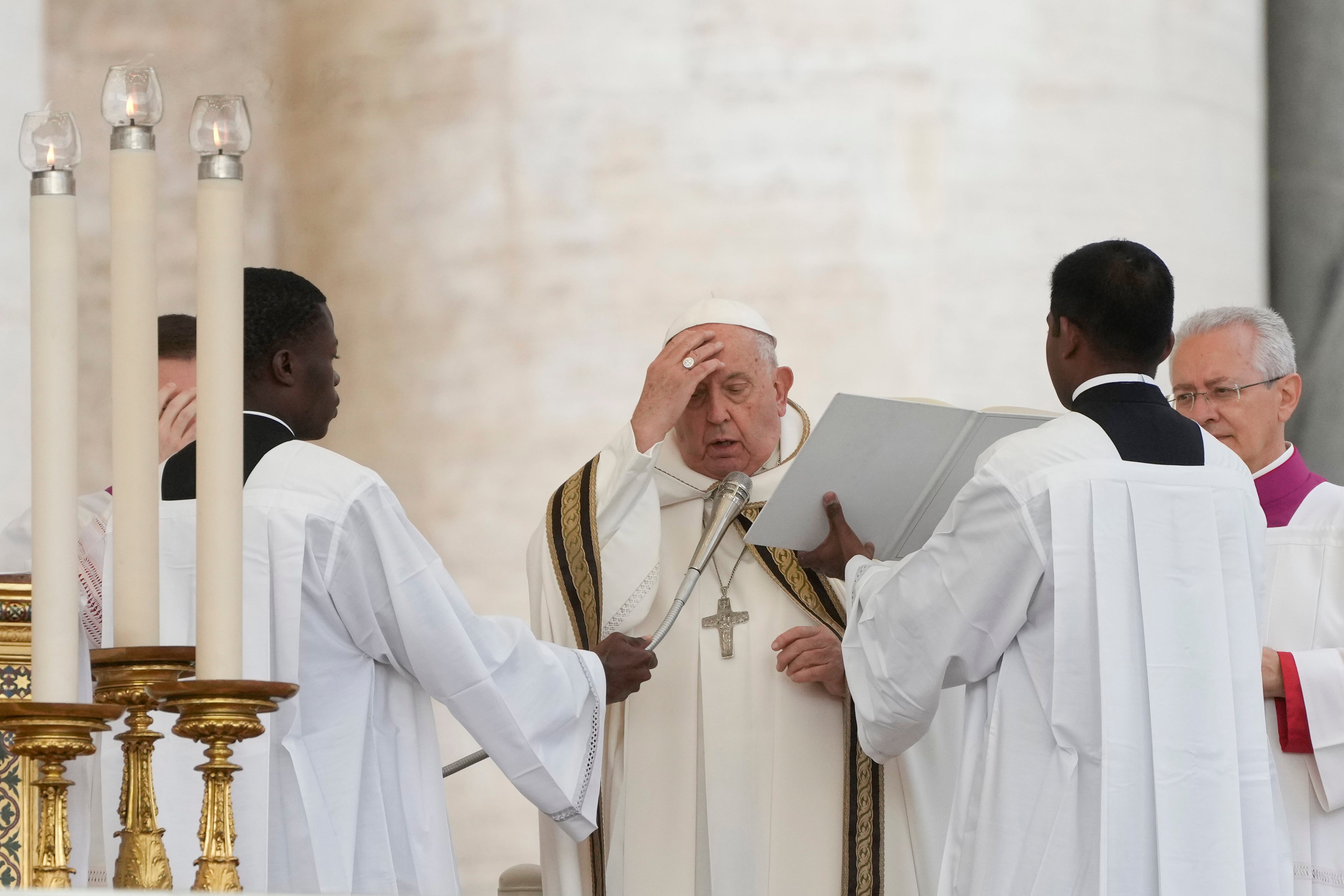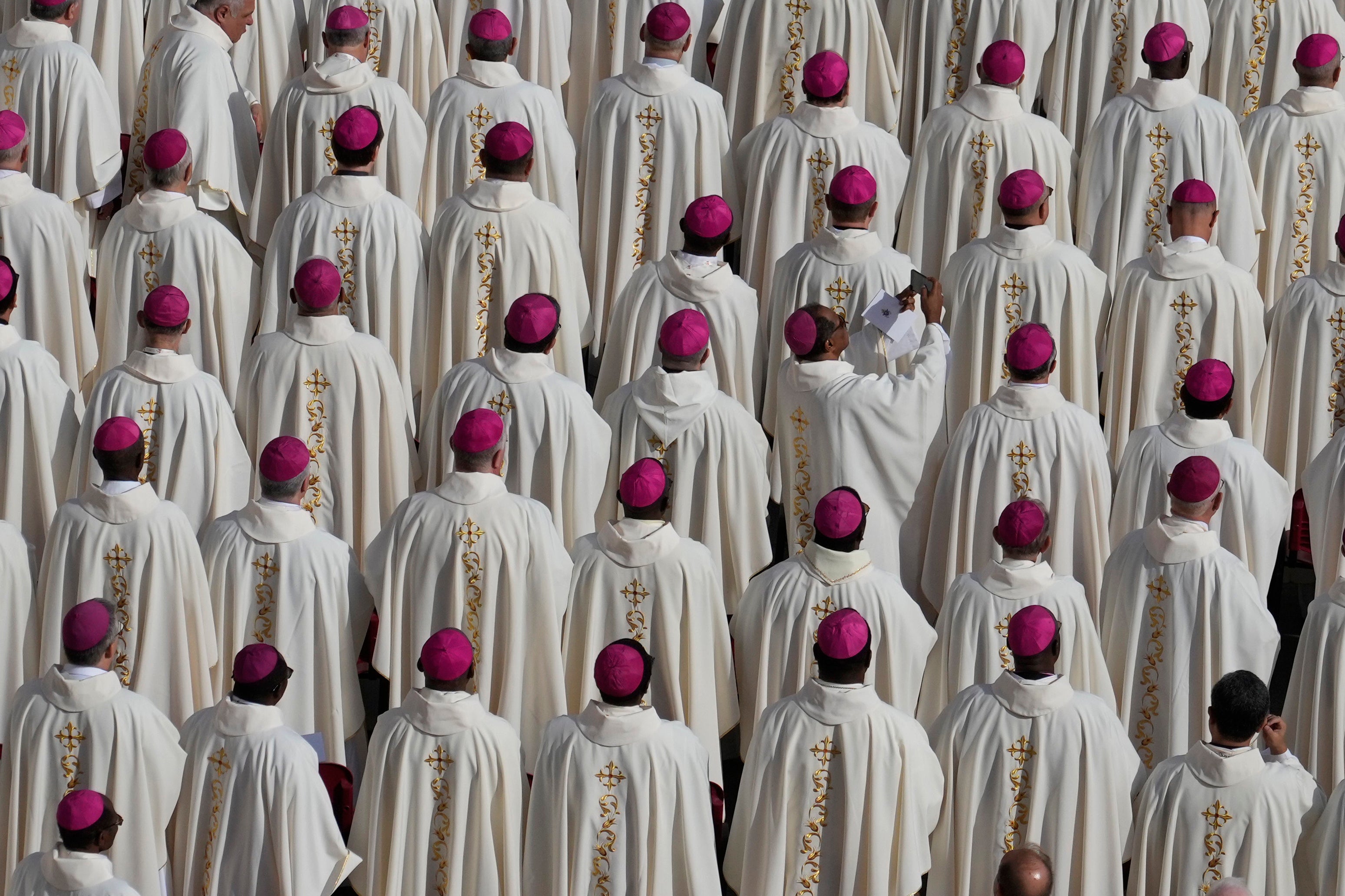Pope Francis has named 21 recent cardinals, significantly increasing the scale of the College of Cardinals who will someday elect his successor.
The group announced on Sunday include a person who will likely be the oldest cardinal — Monsignor Angelo Acerbi, a 99-year-old retired Vatican diplomat who was once held hostage for six weeks in Colombia by leftist guerrillas — and the youngest — the 44-year-old head of the Ukrainian Greek Catholic Church in Melbourne, Australia, Bishop Mykola Bychok, named in a nod to the continuing war in Ukraine.
The recent cardinals will get their red hats at a ceremony, often called a consistory, on December 8, a very important feast day by itself that officially kicks off the Christmas season in Rome. It will likely be Francis‘ tenth consistory to create recent princes of the church and the most important infusion of voting-age cardinals into the faculty in Francis‘ 11-year pontificate. Acerbi is the one considered one of the brand new intake who’s over 80 and hence too old to vote for brand new pope. Usually the faculty has a limit of 120 on voting-age cardinals but popes often exceed the cap temporarily to maintain the body robust as existing cardinals age out. As of September 28, there have been 122 cardinal-electors; meaning the brand new infusion brings their numbers as much as 142.
Among those named by history’s first Latin American pope were the heads of several major dioceses and archdioceses in South America. They are the archbishop of Santiago del Estero, Argentina, Vicente Bokalic Iglic; the archbishop of Porto Alegre, Brazil, Jaime Spengler; the archbishop of Santiago, Chile, Fernando Natalio Chomali Garib; the archbishop of Guayaquil, Ecuador, Luis Gerardo Cabrera Herrera; and the archbishop of Lima, Peru, Carlos Gustavo Castillo Mattasoglio.
That stands in sharp contrast to the lone recent cardinal from North America: the archbishop of Toronto, Francis Leo.
Showing the universality of the church all over the world, Francis also tapped the archbishop of Tehran, Iran, Monsignor Dominique Joseph Mathieu, and the bishop of Bogor, Indonesia, Monsignor Paskalis Bruno Syukor. They each belong to the Franciscan religious order and are two of the 4 recent Franciscan cardinals.
In addition to Syukor, Asia gets two more cardinals in Monsignor Tarcisio Isao Kikuchi, the archbishop of Tokyo; and Monsignor Pablo Virgilio Sinogco David, the bishop of Kalookan, Philippines. Aside from Asia the opposite region where the church is growing is Africa, which got two recent cardinals: the archbishop of Abidjan, Ivory Coast, Monsignor Ignace Bessi Dogbo, and the bishop of Algiers, Algeria, Monsignor Jean-Paul Vesco. “Francis has again continued to increase the reach of the faculty of cardinals,” said Christopher Bellitto, a church historian at Kean University in Union, New Jersey. “Like his predecessors, but much more so, he’s ensuring that Catholic leaders from the church’s edges have a voice at the massive table.” Even before Sunday’s announcement, Francis had already named the overwhelming majority of the voting-age cardinals who will someday vote in a conclave. According to Vatican statistics, before Sunday, 92 of the cardinals under 80 had been named by Francis, compared with 24 named by Pope Benedict XVI and 6 by St. John Paul II.

Added to their ranks on Sunday were two Vatican officials who hold positions that don’t often carry with them a cardinal’s rank: the official in control of the migrants section of the Vatican development office, the Rev. Fabio Baggio, and the official who organizes the pope‘s foreign travels, the Rev. George Jacob Koovakad. In a nod to the present synod underway on the Vatican this month debating the longer term of the church, Francis also tapped the Rev. Timothy Radcliffe, a British theologian who’s considered one of the spiritual advisers for the meeting. Bellitto said it was “nonsense” to read the brand new cardinals as Francis doing something unique to attempt to stack the deck. “Every school superintendent, president, and prime minister picks people of their image to assist their vision,” he said in an email. The nomination of Bychok gave Ukraine its only cardinal and sent a subtle political message as Russia’s war grinds on. Ukraine’s ambassador to the Holy See, Andrii Yurash, praised the nomination, regardless that Francis selected the top of Ukraine’s Greek Catholic Church in Australia over the Kyiv-based head, His Beatitude Sviatoslav Shevchuk.
On Monday Pope Francis also criticised what he called the “shameful inability” of the international community to finish the war within the Middle East, one yr after Hamas’ devastating attack on Israel.
“A yr ago, the fuse of hatred was lit; it didn’t sputter, but exploded in a spiral of violence,” he said in an open letter to Catholics within the region.
“It seems that few people care about what’s most needed and what’s most desired: dialogue and peace,” he wrote. “Violence never brings peace. History proves this, yet years and years of conflict appear to have taught us nothing.”

Francis, who has also made Monday a day of fasting and prayers for peace for Catholics globally, has spoken more openly in recent weeks concerning the Hamas-Israel conflict, and has change into more vocal in his criticism of Israel’s military campaign.
On September 29, the 87-year-old pontiff criticised Israeli airstrikes in Lebanon that killed Hezbollah leader Sayyed Hassan Nasrallah in addition to non-combatants, suggesting the airstrikes went “beyond morality”.
Earlier in September, the pope called Israel’s actions in Lebanon “unacceptable” and urged the international community to do all the pieces possible to halt the fighting.
In his letter on Monday, Francis directly addressed Gazans: “I’m with you, the people of Gaza, long embattled and in dire straits. You are in my thoughts and prayers each day,” he wrote.
“I’m with you, who’ve been forced to depart your homes, to desert education and work and to search out a spot of refuge from the bombing. … I’m with you, who’re afraid to look up for fear of fireside raining down from the skies,” he said.


